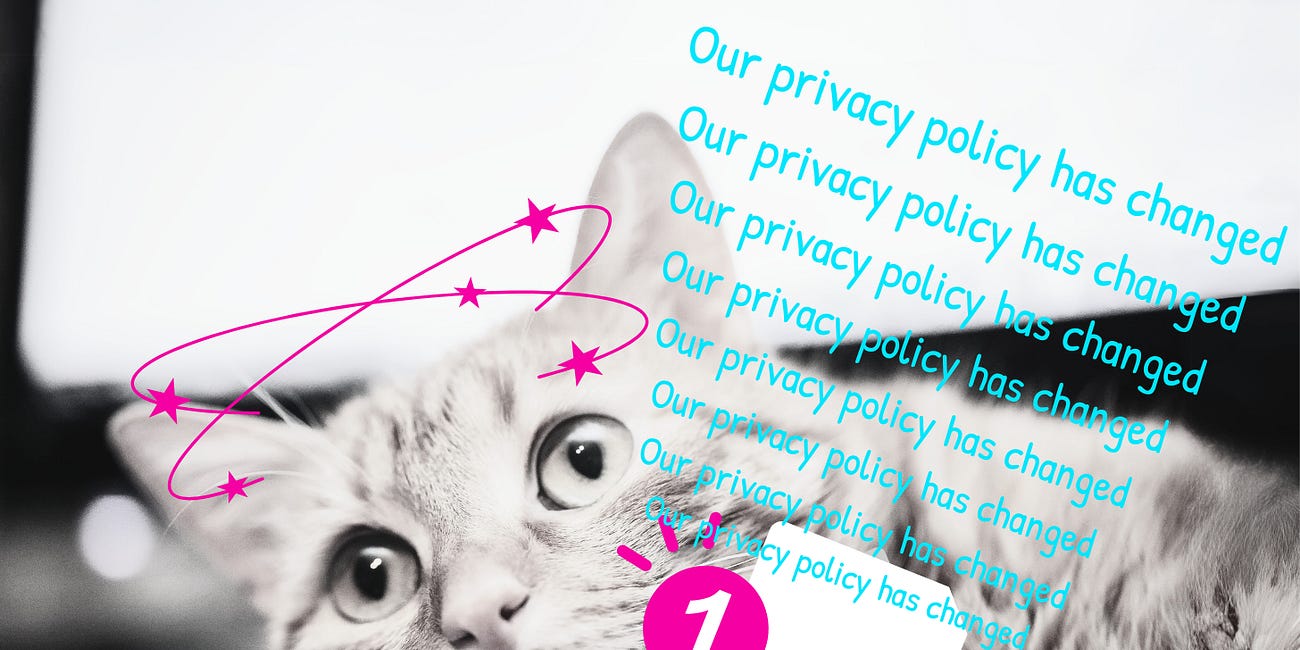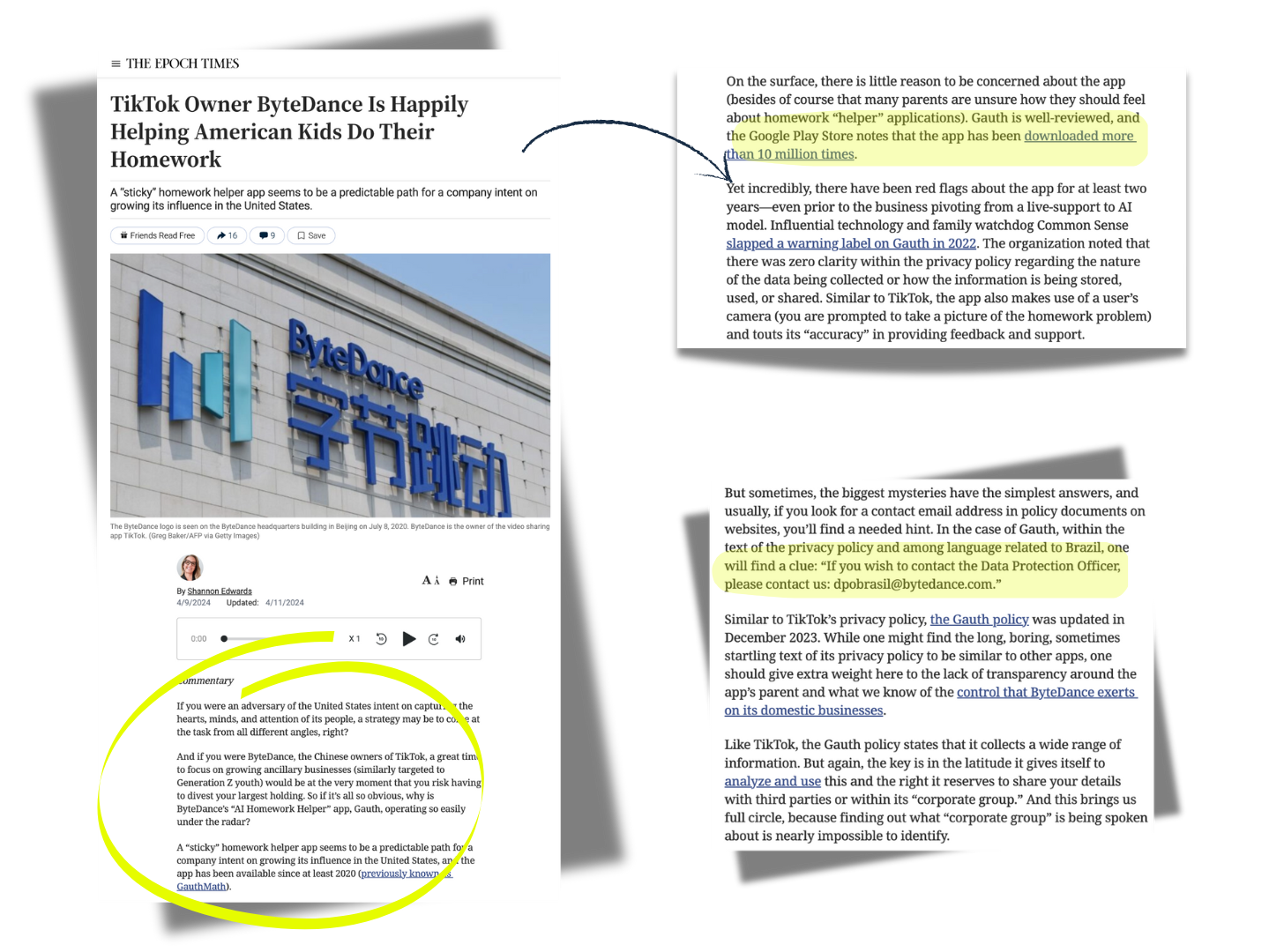What TikTok Did Next (and Why it Matters)
#NEWSLETTER | Legislation to force the sale of TikTok passed, but it's not stopped parent ByteDance (as they move on to homework "help"). Why a "digital Cold War" has begun & how we slay it 🦹🏼⚡️...
The global struggle for AI dominance has started. Telltale signs?
Well first, those endless “our privacy policy has changed” emails clogging our inboxes as companies integrate AI and wiggle in new ways to secure our data. It’s so persistent right now that the FTC issued a warning for consumers to stay alert (and for companies to know the FTC is watching them).
Also notable is how hard TikTok’s fought to keep access to Americans’ data — and how uncharacteristically aligned Congress has been in endeavoring to stop them. Read more here ⤵️
TikTok: Aligning a Too-Often-Divided Congress
A divided US government finding consensus should have been the first sign that something serious was afoot with TikTok and our data.
This Canadian Broadcasting (CBC) clip is one of the better short recaps of why we all should care, and proof that the US is not alone in its concerns. Watch here ⤵️
Global Data Theft isn’t New… But AI Will Change How it’s Used
China has been illegally collecting the data of Americans for years. In 2018, the information of 500 million Marriott guests was compromised by Chinese criminals. In 2020, the US charged four Chinese military hackers in the 2017 Equifax breach. The list is so long that no doubt many of us have information included in their bounty.
China has the most sophisticated domestic surveillance operation in the world too. This means that advances in AI only help them collect, process, and utilize all of this data better. And, of course, right behind them are other countries that seek to put the squeeze on Americans via “digital warfare.”
You Didn’t Think TikTok’s Parent Company Would Give Up, Did You?
How About That “Homework Helper” App?
If you were rewarded/ordered by your country for securing the biometric information of 170 million Americans and feared that access were to change, a few more “sticky” products in the market could help.
And, of course, ByteDance is a large, multi brand company. The problem is, the US government forgot to communicate that part in their outreach to Americans about the risk of our data in the hands of TikTok (and by extension ByteDance and Beijing).
How fraught this battle is was evident in my house last week…
Despite the reporting I did on a sister app to TikTok, called Gauth, that ByteDance has been pushing hard to promote (and yet working to keep the relationship to TikTok on the down lo)… my daughter innocently asked to download the app.
She said other kids are using it and she saw an ad somewhere.
(the article is paywalled, so contact me if you’d like an invite to read the piece…)
A few highlights of what I found:
Like TikTok, Gauth requires access to your phone’s camera and has all the same privacy issues as TikTok.
The app offers “help” to kids across a broad range of subjects (I mean, isn’t helping with homework the way to our kids’ hearts after — or maybe before — socializing?)
Gauth is trending in the Apple store and on Google Play despite non-profit Common Sense raising the alarm a couple of years ago that Gauth has major privacy issues.
Oh, and the app will now also help “write” papers having integrated generative AI (yes, you heard that right, a Beijing-based company with ties to the CCP wants to help “write” kids’ papers…).
So, needless to say, it’s time to pay attention.
What’s Next?
If data is “the new oil” (so says the FTC) then both domestic and foreign entities will want to get their hands on it… and lots of it.
For the former, you decide if the exchange is worth it. For the latter, you need to run a firm defense. Because, as the security expert says in the CBC clip above… we may not know the implications for years, and by then the consequences could be devastating.
Knowledge is our superpower! Let’s us it.
If you haven’t started following AI for Families on Instagram, please do!









